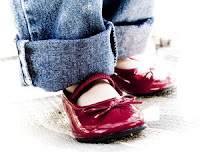Peace Corps
HACIENDOSE VOLUNTARIO. Matt y Liza conversan acerca del Peace Corps (programa norteamericano de voluntariado) en el cual están participando.
En el texto hemos resaltado las palabras y expresiones que se detallan en un glosario bilingüe.
Pulsa para escuchar. Para descargar con botón derecho selecciona la opción "Guardar Archivo Como" y guarda el archivo en tu computadora
|
Matt: | So, how long have you been in the Peace Corps? |
Liza: | For about a year now. |
Matt: | Do you enjoy it? |
Liza: | Most of the time. The work can be extremely difficult, but it has its rewards. |
Matt: | What's the most challenging thing about being in the Peace Corps? |
Liza: | For me, it's finding a way to fit into a community that's very different from my own. It can be frustrating! |
Matt: | And what's the most rewarding thing? |
Liza: | That's easy. The most rewarding thing about being in the Peace Corps is learning about another culture. You know what I've found to be one of the most difficult things? Learning the local languages. |
Matt: | Oh, I know exactly what you mean! |
Liza: | You know, I thought I would only have to learn one language when I came here, but I soon discovered that almost every village has a different language or dialect. |
Matt: | I have the same trouble myself. It sometimes takes me a while to find someone who can speak English. |
Liza: | I need an interpreter with me most of the time – that is, if I want anyone to understand anything I say. |
Matt: | But it is one of the things that makes living here so interesting. |
Liza: | Oh, absolutely. I think the people here are really wonderful. They're very sincere – kind of shy at first with foreigners, but once you get through that, they come to accept you. |
Matt: | Oh, yeah. I've made some wonderful friends here. |
Liza: | |
|
|
|




No hay comentarios:
Publicar un comentario